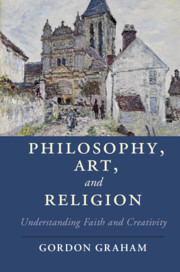4 - Literature and Liturgy
Published online by Cambridge University Press: 06 August 2018
Summary
It was observed early in the previous chapter that every major world religion has some form of scripture, some book that the adherents of the religion think to be of special value and significance. These books differ in character; some are histories, others are books of law, others poetry and myth. As Chapter 3 also noted, they differ in the authority that believers attribute to them. The three great “Religions of the Book” – Judaism, Christianity, and Islam – think of their scriptures as divine revelation, while in the religions of the Far East even highly revered texts are not always regarded in this way. The role that these books play in religious practice also differs, since some are used in worship and others are not. But the fact that texts have this special place inevitably gives the literary arts greater prominence in most religions than the other arts. As we have seen, some religious traditions are wary of painting and sculpture, while others are no less wary of architecture. Even music, which is found in almost all religions, does not have the same status as text. There are no musical equivalents to “canonical” writings.
Not all religious writing, of course, is an exercise in literary art. In the medieval period (and at other times) Christian theology was classified as a “science,” and many theological works clearly favor logical rigor and conceptual system over elegant or memorable expression. It is also true that many religions have lent considerable importance to recording their own history, and in this case (theoretically at least) fact and accuracy take first place. Both hagiography and apologetics are common, certainly, but there are also many serious and sustained attempts by believers to know their own history. This variety in types of writing is not confined to ancillary or peripheral religious texts. They can be found within a single holy book. The Hebrew Bible, for instance, contains theological exposition (in Proverbs), and historical narrative (in Kings and Samuel) alongside the poetry of the Psalms and imaginative stories such as those of Jonah, Job, and Daniel.
It is true that the distinctions between science, history, and literature are not always easy to apply.
- Type
- Chapter
- Information
- Philosophy, Art, and ReligionUnderstanding Faith and Creativity, pp. 96 - 131Publisher: Cambridge University PressPrint publication year: 2017

